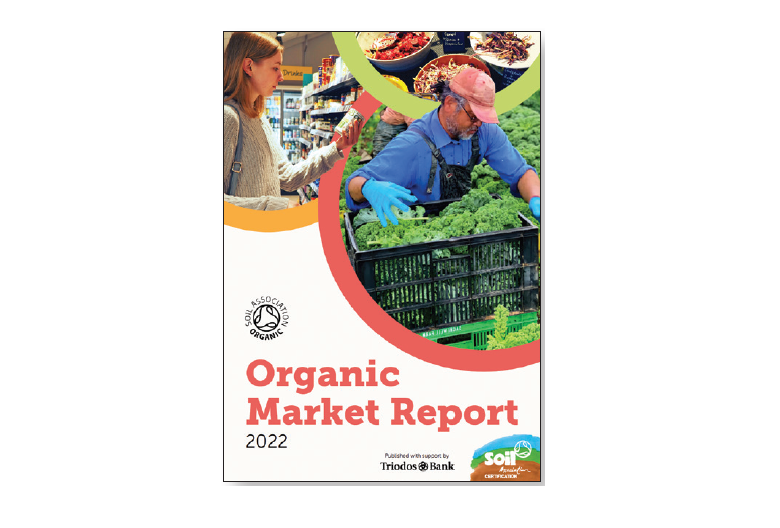The organic sector has broken the £3bn mark for the first time after recording growth last year of 5.2 per cent, significantly outperforming nonorganic. According to Soil Association Certification’s Organic Market Report 2022, the market is now worth £3.05bn and the category is showing exceptional growth and resilience, with nearly £60m a week now spent on organic food and drink as consumers prioritise sustainability and health.
This was the 10th year of consecutive growth – despite a year of unprecedented challenges and means the total organic market has seen a phenomenal 23 per cent increase in just two years (UK organic sales in 2019 were £2.48bn).
Independent retailers recorded an impressive nine per cent rise. The report noted that it has been another mixed year for independent retailers selling organic, but the sector has come back into growth as more stores have been able to open.
Some city centre retailers have been negatively affected by more people working from home, but many local stores have benefited from this change. The report shows strong performance across all areas, including supermarkets and their home delivery services (+2.4 per cent)**, now worth £1.97bn, food service (+3.3 per cent), and particularly strong performance for online and box schemes, which together delivered growth of 13 per cent, worth £558m*. Online sales (including box schemes) enjoyed another great year with 13 per cent growth worth £558m*, and when combined with supermarket home delivery sales, one in four organic products purchased online.
Customers who bought organic online and used box schemes following the pandemic have continued with their new shopping habits. Online has enabled retailers to offer a wider range and choice of products, which is attributed with attracting more customers to organic and its strong growth. Amazon is now the largest online retailer of organic in the UK
with over 8,500 Soil Association Certification products. Soil Association Certification Business Development Director,
Clare McDermott, commented: “Despite challenges across all aspects of production, supply and the market, organic businesses have shown phenomenal resilience and responded to (continually increasing) shopper demand for products that support both health and the environment. Shoppers are increasingly looking for products that reflect their values and organic is meeting that need. “The wider organic choice available online is bringing new shoppers to the category. Box
scheme sales continue to be strong as shoppers look for provenance and traceability in their choices and over a fifth of organic food and drink sold through supermarkets is now online. With shoppers in the UK now spending £60m a week on
organic, there is a huge opportunity for organic businesses to innovate both in channel and product and continue growing the market.”
The report also found that innovation and NPD are driving sales across organic with over 4,000 innovations registered with Soil Association Certification in 2021 – from brand new items, to reformulated products including tea and coffee, to new plant-based items in established categories, such as dairy.
Hero categories include tea and coffee, with £1 in every £10 in supermarkets spent on organic tea and for coffee – figures from January 2022 showed a 12 per cent** increase in sales. Beers, wines and spirits were also up 16.9 per cent** in 2021.
Sales of organic and natural beauty products grew 15 per cent to over £135m in 2021 and sales of Soil Association Certification organic textiles grew by 39 per cent, worth over £68m. Demand is outstripping supply of certified organic cotton, as more brands and retailers commit to sourcing organic cotton as part of their sustainability strategies. A separate Organic Beauty and Wellbeing Market Report will be published in March.
Organic farming was also Organic farming was also highlighted, with the report finding the challenge for UK farmers and supply chains now is to step up to meet the demand presented by the strong growth in the organic market.
Land in conversion is not increasing sufficiently fast enough and there is a need for robust supply chains to support farmers. At present, more ingredients and products are being imported to support increased demand, which is not what anyone wants. There needs to be robust supply chains – and consumers want to buy British.
The latest figures from DEFRA show that there was a 12 per cent rise in the area of land being converted to organic in 2020 compared to the previous year, however, the total area of land farmed organically has remained the same, increasing by just 0.8 per cent compared to 2019.



